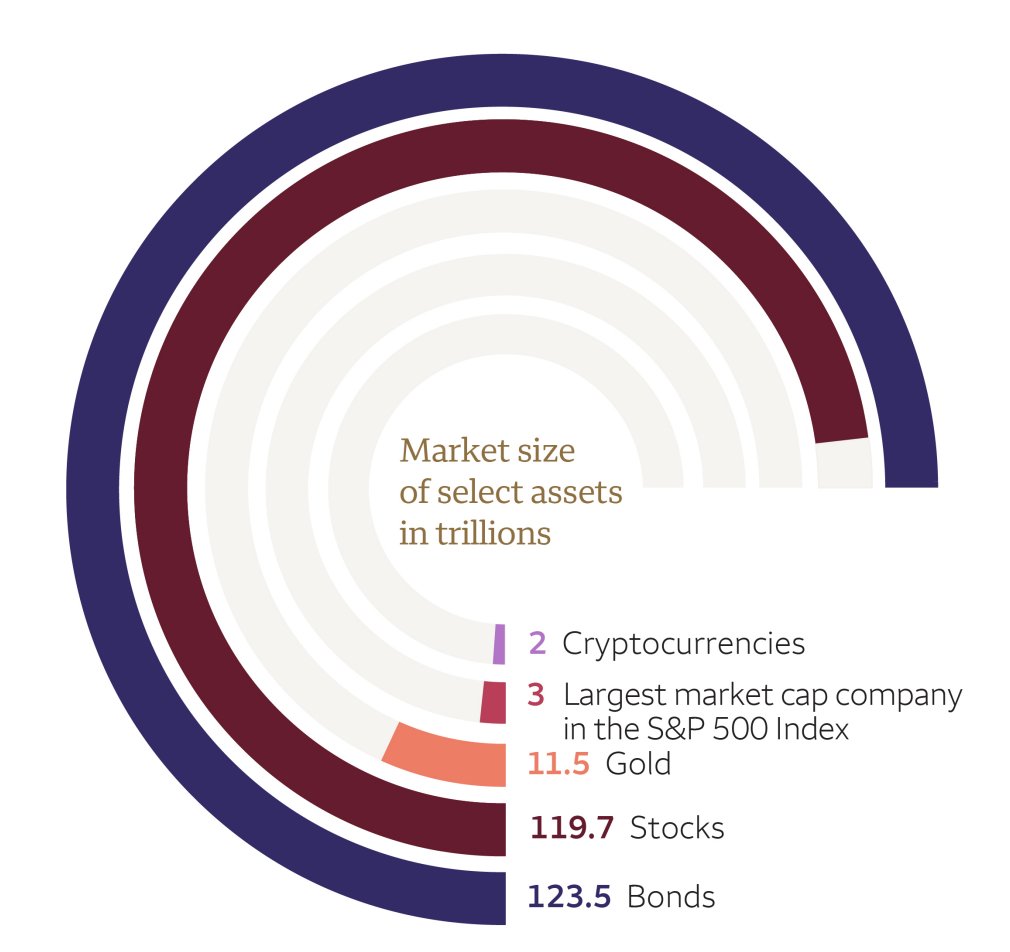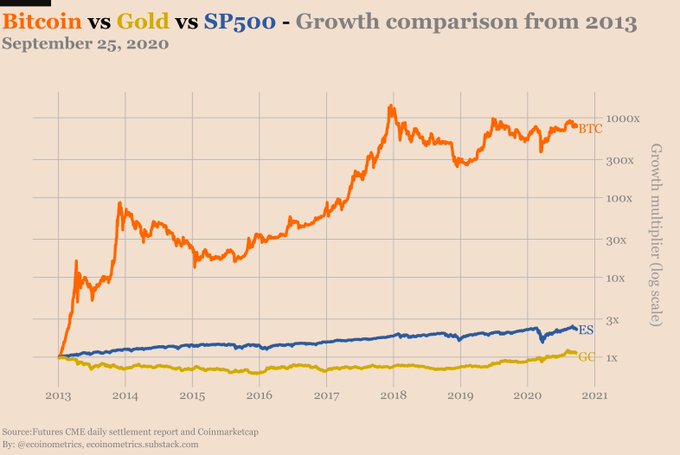If you’ve followed me for a while, you may know that Bitcoin is a topic I’m very interested in. I haven’t talked about this much on my blog or podcast but today I thought I’d change that and take you behind the scenes on how I store the money in my business.
I’d like to share why I’m now running my business on a ‘Bitcoin Standard’, what that means and the rationale behind the decision. As this is a topic I don’t cover a lot, please share your feedback in the comments below and let me know if this is something you’d like me to write more about.
Don't want to read this post? Listen to the podcast instead:
This episode is sponsored by TextExpander. Save 20% when you sign up here.
What is Bitcoin?
Most people by now have at least heard of Bitcoin. Here’s a quick definition for anyone that’s still not sure what it actually is:
Bitcoin is a digital currency that is “decentralised”. Meaning it’s not controlled by any one person, organisation or government. A bit like the internet. Nobody owns or controls it. This is what makes Bitcoin so unique compared to normal fiat currencies and even other cryptocurrencies. It’s an open-sourced protocol that no single person or entity can control or change on its own.
What is a ‘Bitcoin Standard’?
The term ‘Bitcoin Standard’ comes from the old term, the ‘Gold Standard’. After WW2 and up until the year 1971, the world operated on a ‘gold standard’ where the US dollar was pegged to the price of gold and all other currencies were pegged to the US dollar. Basically, all currencies could be converted into a set amount of gold. This helps to keep prices and the economy stable. This is what people mean when they say money is ‘backed’ by gold. Gold is the base layer of the financial system that everything is linked to. Or at least it was… Now, all currencies are floating and aren’t pegged to gold. In fact, they’re not pegged to anything. This is why it’s so easy for central banks to inject new money into the financial system.
A ‘Bitcoin Standard’ is where you use Bitcoin as a base layer to store wealth.
In practice, what I do at the end of each month is I take my gross earnings from the business, I set aside a certain amount for taxes and to cover ongoing expenses to run my business. The rest goes into a business savings account. I make sure I have plenty of runway in this account. In other words, if something disastrous were to happen, my savings could cover expenses and I could still draw an income from my business if I couldn’t work. Once I’m happy with this cash ‘cushion’, I take some of the business savings and convert this into Bitcoin to hold in the form of long-term savings.
Why operate on a ‘Bitcoin Standard’?
What’s the point in this you may ask? Why not just hold cash?
I’m sure you’ve heard that inflation is pretty high all around the world right now. House prices are going crazy, groceries and fuel prices are all going up. And when costs go up, this means the money you earn is losing its purchasing power.
A lot of property owners in New Zealand feel pretty good about themselves right now. House prices have gone up around 30% in the last year. But if you were to sell your house, you’re still buying in the same market and in reality, your money isn’t getting you any more than it did before. Your purchasing power is the same.
Think of it like this, property isn’t going up in value. Instead, money is losing value.
Bringing this back to my business, yes I want to keep some cash on hand to cover expenses and in case of emergencies. But anything I don’t need over the short-term I should convert into another asset that will hold its value. Money sitting in the bank is just an ice cube that’s slowly melting due to inflation eroding its purchasing power.
Now you might be asking: “Okay, but why Bitcoin? Why not stocks, bonds or other assets?”
This is a big question to answer, but in short; I’ve been studying and learning about Bitcoin since I started buying in 2017. The more I’ve learned, the more I’ve come to appreciate how incredible Bitcoin as a technology and as a network really is.
One of the most important features of Bitcoin is that it has a hard cap of 21 million coins. This means there will only ever be 21 million Bitcoin. Nobody can create more. Unlike fiat currencies and even other cryptocurrencies which can be inflated by their owners, Bitcoin’s hard cap is enforced by immutable code that tens of thousands of computers around the world agree to follow. And if anyone tries to cheat the system, that computer is kicked off of the network.
With basically every other asset: gold, stocks, commodities, bonds etc. when the price of the asset goes up, this incentivises suppliers to produce more of the asset which ultimately, brings prices back down. Bitcoin’s supply is completely inelastic from price. The price could double today and the supply would not change.
By adopting Bitcoin, you are opting out of a system where governments and central banks can inflate the currency and reduce your purchasing power.
A lot of people think Bitcoin is too expensive, but really we’re still in the very early days. The worldwide adoption of Bitcoin right now is equivalent to where we were at with the adoption of the internet in the year 2000. Bitcoin’s market cap is currently less than $1 trillion and if investors and institutions continue to transfer a portion of their wealth from stocks, bonds, precious metals and other assets into Bitcoin, the Bitcoin market could easily surpass a $10 trillion valuation over the next 10 years (which I still think it quite conservative).

So, there is massive upside potential from here. But what are the risks?
What are the risks?
What I’m doing isn’t for everyone. Here are some of the risks and how I view them:
Volatility risk – Bitcoin’s price volatility is probably the biggest risk. In the past few years, we’ve seen Bitcoin’s price massively appreciate and then pull back by over 50% which can be pretty nerve-wracking to watch. Most people only look at the short-term price. But if you look at how Bitcoin has performed over the long run, it’s been the best performing asset of the last 10 years and has grown 180-200% a year on average. Not bad!

The key to dealing with volatility is to take a very long-term view when purchasing Bitcoin. When I talk to people, I tell them only to invest money they don't need for the next few years. If you need the money for a house, car or something else, don’t put it in Bitcoin. Otherwise, you may be waiting for a while for the price to recover to use your funds.
Regulation risk – Another risk people often cite is that governments could ban Bitcoin. This is true. In fact, in 2021, China which at the time controlled the largest percentage of Bitcoin’s hash power banned Bitcoin mining. We then witnesses a massive and completely uncoordinated shift in the network where around 50% of Bitcoin miners had to shut down and relocate to other jurisdictions. Bitcoin’s hash power has more than recovered and there are now many Bitcoin-friendly countries and US states who are embracing Bitcoin.
We’re now seeing an interesting dynamic play out as energy companies are embracing Bitcoin to help stabilise their power grid and to help lower the cost of power for consumers. When Sweden came out at the end of 2021 saying Bitcoin mining should be banned in Europe, the countries state-owned energy provider defended Bitcoin for this very reason (source).
I believe we’re now at the point where there is enough protection from institutions and even members of congress who support Bitcoin that an all-out ban is very unlikely.
What’s the end game?
You may be asking, “When do you sell the Bitcoin?”
The way I think I’ll be managing money in the future is similar to what I’m doing now. I don't necessarily think Bitcoin will replace fiat currencies any time soon. I’m still going to use the US and NZ dollars to run my business, pay my mortgage and buy food. But, I’ll continue to use Bitcoin as a long-term store of value instead of keeping surplus cash in the bank where it is being devalued by inflation.
When I need to use the funds, I can sell some Bitcoin at any time. As I’ve been buying Bitcoin for a few years, my portfolio is profitable even though the price is currently down about 40% from its all-time high. As mentioned, Bitcoin has grown about 200% a year over the last 10 years. This just goes to show the importance of buying and holding over the long term. If you don't own any Bitcoin, the best time to start buying is today. The longer you hold, the better of you'll be (according to history).
I actually buy a little bit of Bitcoin each week, regardless of price. Some people wait for the price to drop to get a better rate but this is very hard to time perfectly and most people miss out. Instead, buying each week or month, also known as ‘dollar cost averaging is the best tactic you can use to accumulate slowly over the long run.
Another method I plan to use in the future is to use Bitcoin as collateral to get a loan. By getting a loan, you’re not actually selling the Bitcoin and therefore don't have to pay a capital gains tax. As long as Bitcoin continues to grow as expected, the price appreciation will cover the interest on the loan and you’re better off compared to selling the Bitcoin. Again, this strategy comes with its own set of risks which I’ll plan for when the time comes.
—
I hope you’ve found this behind-the-scenes look at how I’m using Bitcoin in my business interesting. If you have any feedback, questions or want to learn more, please let me know in the comments below.
